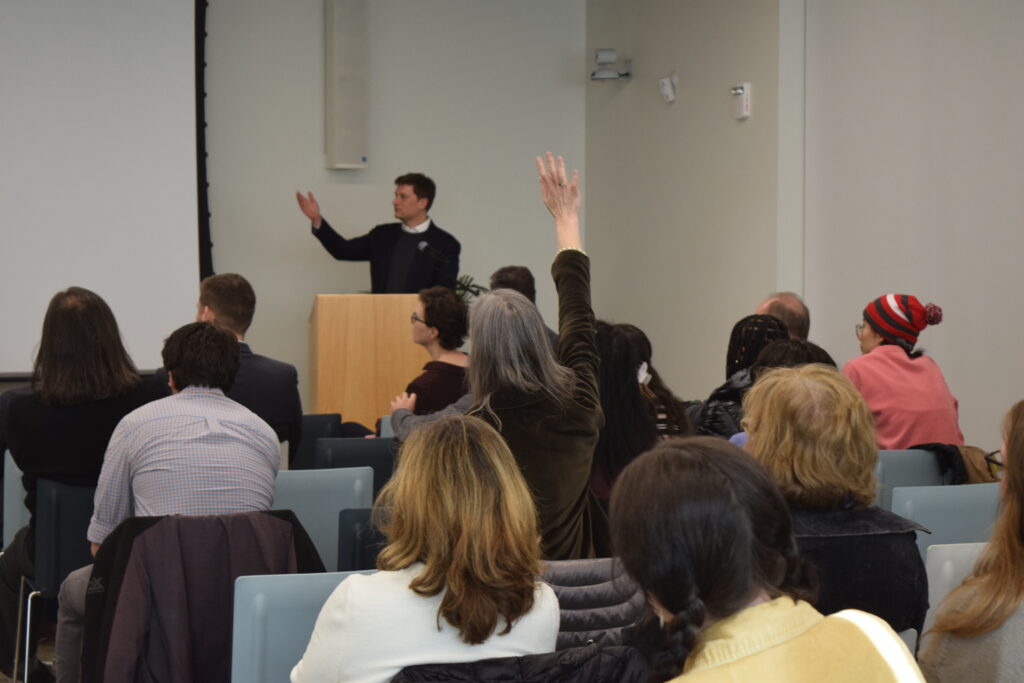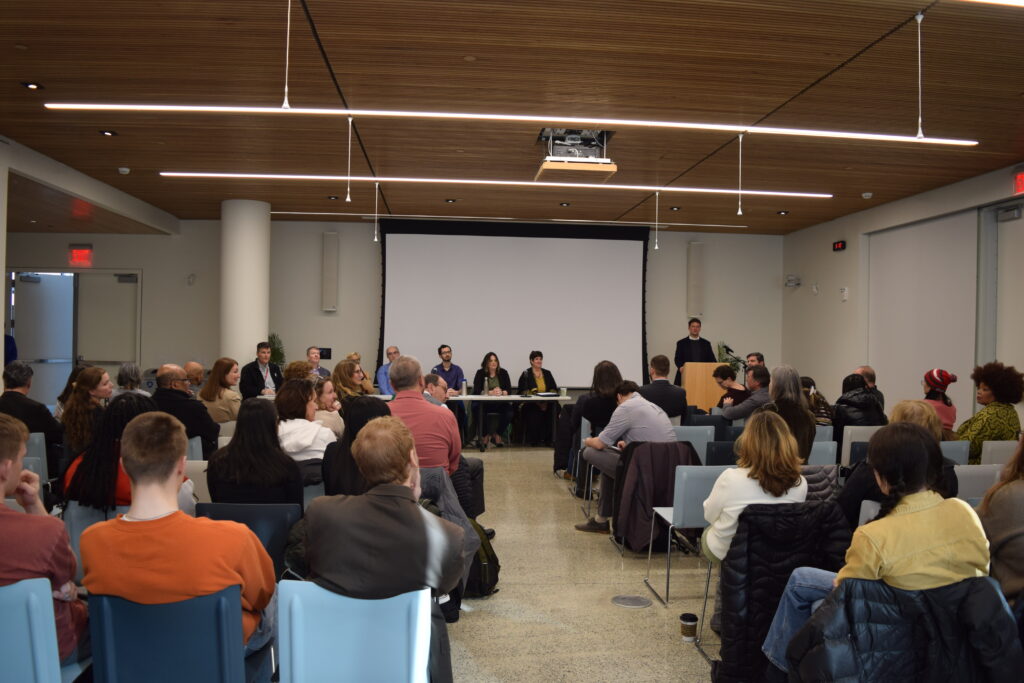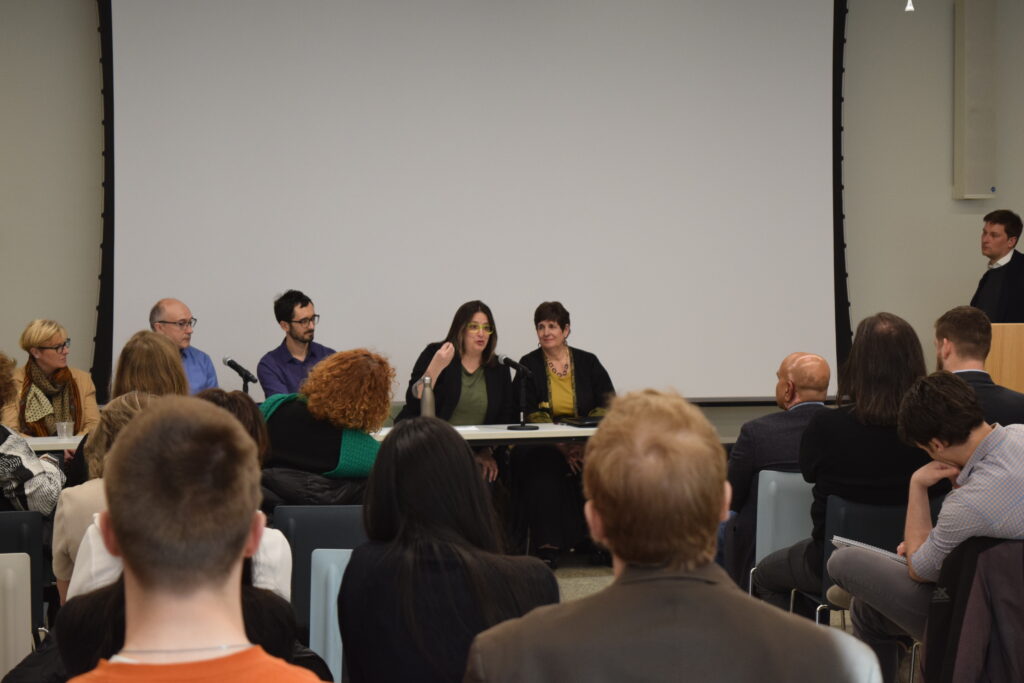
The rapid advancement of computer-generated content, exemplified by products like OpenAI’s ChatGPT and Google’s Bard, has ignited a veritable investment arms race within the technology sector. Universities, in turn, find themselves grappling with the momentous task of integrating these tools into their teaching and learning environments, catering to the evolving needs of students, instructors, and researchers alike.
However, this phenomenon is not new to us. When the personal computer first became popular in the early 80s it was accompanied by rumors of widespread job displacement. Although, the past three decades have demonstrated that the true challenge lies not in the technology itself, but in the ability to adapt and harness its potential.
Recognizing the urgency of this paradigm shift, Temple University Libraries has taken proactive steps to stay ahead of the curve. In a bid to initiate the much-needed discussion with faculty, the Libraries hosted a “Grand Challenges” Faculty Conversation on March 20, 2024. This forum brought together seven esteemed faculty members, who shared their insights on the use of AI within their respective industries and classrooms.
As Dr. Christine Cleaver, associate professor in the School of Sport, Tourism and Hospitality Management, aptly observed, “You are not going to lose your job to AI, rather you will lose your job to someone who knows how to use AI.”
Dr. Cleaver underscores the critical importance of understanding the power of AI technologies and how they might best be used in our educational and professional landscapes.
The panel was moderated by Associate Professor of Philosophy Brian Hutler from the College and Liberal Arts, and it consisted of:
Stephanie Fiore / Associate Vice Provost & Senior Director for the Center of Advancement of Teaching
Abby Guido / Tyler School of Art and Architecture/ Design
Phillip Dames / College of Engineering / Mechanical Engineering
Slobodan Vucetic / College of Engineering/ Computer and Information Science
Christine Cleaver / School of Sport, Tourism, and Hospitality Management
Bruce Hardy / Klein College of Media and Communication / Communication and Social Influence
Steve Ryan / Klein College of Media and Communication / Journalism
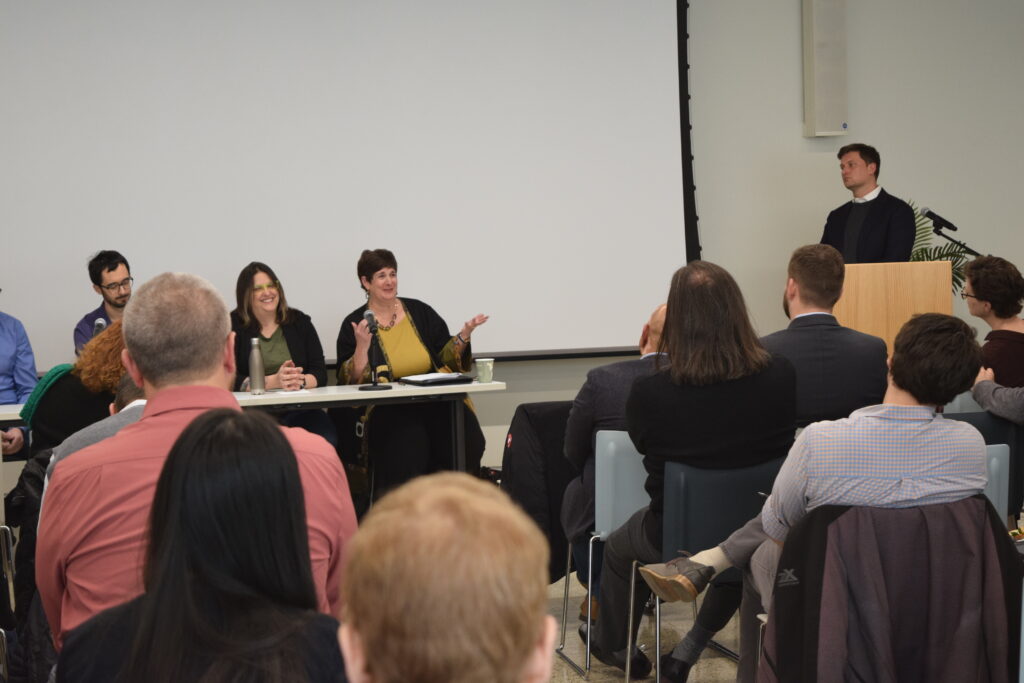
After the panel, three professors sat down with the Libraries to further discuss the hot topic: AI.
AI in the Arts
Abby Guido, associate professor in the Tyler School of Art and Architecture: Graphic and Interactive Design is optimistic about AI entering the design landscape. She explained that she is excited about this new tool and how it will likely minimize the time designers spend on tedious tasks that no one really enjoys doing because the tasks usually lack creativity.
Guido reminisced about the early days of premade icons and when they first became popular in design, and she felt as if it was cheating to use someone else’s icon. She described that this is very similar to how people are reacting to AI in graphic design now, and that there will likely be an attitude shift in the coming years.
“I had mentioned in my class this semester, let’s try to see what AI can do for us and honestly, it hasn’t been that much,” said Guido, “there’s still a long way for the visual side of AI to grow, but it’s going to happen fast. I think folks very quickly realize like having a tool doesn’t make you anything, right? It’s knowing how to use that tool.”
Although she admits that we don’t know what the jobs are going to look like for designers with this big of a technological change. Which is possibly the biggest change to technology that most of us will see in our lifetime. There is still a lot of gray area.
“It means that our voices could be heard and explaining the power of creative work and the power of strong branding and being able to be on the level of the C-Suite position. We’ve been fighting for many years to show our value,” said Guido.
AI in Management – Project Spark
Dr. Christine Cleaver is also confident about the use of AI in her field, but she wants to remind students that AI can be helpful, but it can also be harmful.
“This is not a perfection tool; this is a tool to assist you,” said Dr. Cleaver, “you can’t expect it to be perfect. It’s not going to be––humans aren’t perfect. This language model is also not perfect, but this gives you a starting point.”
Dr. Cleaver has started to use Project Spark in her classrooms which is an industry-specific generative AI tool that the Professional Convention Management Association created.
She mentioned that this tool will streamline certain objectives for her students, such as:
“If you are a sophomore and you’re working on an operations plan for an event and you have to do a timeline, that may be something you’ve never done before, and this product assists you with putting that together so you can actually see a starting point. It’s very helpful and creates some synergy, you can foster more ideas, more collaboration, and more higher-level thinking,” said Dr. Cleaver.
She mentioned that she is implementing reflections throughout the semester to ensure that her students are critically thinking about their use of AI and how it affects their work.
“You need to remind the students this is not the cure. That’s why I want to put this in as a tool that they have to use all semester long, so that before they use this, they need to go through these following checkpoints so that it’s where it needs to be. I want to show the students how to use the tool in the most ethical manner,” said Dr. Cleaver.
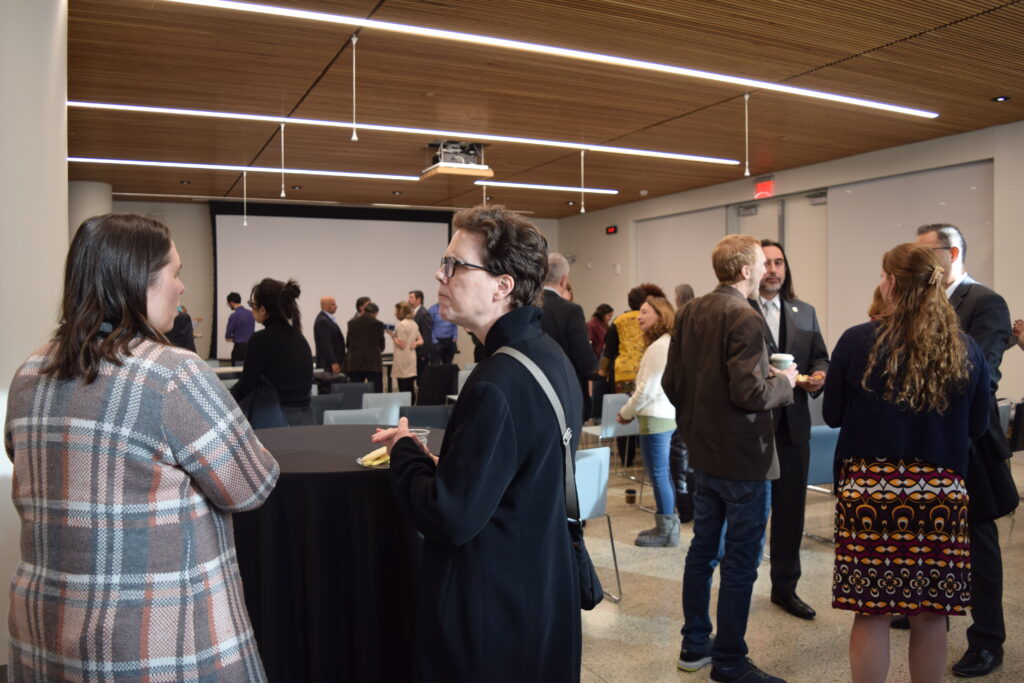
Communicating about AI
Dr. Bruce Hardy, associate professor in the Lew Klein College of Media and Communication: Communication and Social Influence has mixed feelings when it comes to generative AI.
“At least in the classroom, I can’t even imagine how much of a positive impact is going to have on our research on thinking through ways in which at least coming up with computations that we wouldn’t be able to do as human,” said Dr. Hardy, “so, I think as a tool for research and teaching, it’s going to be really important. But I know there’s a lot of concerns around other aspects, particularly like cheating.”
Dr. Hardy underscores that many people don’t have a lot of knowledge of what AI is and most of their understanding of it comes from movies or content that they see on social media. He further went on to explain that there is a lack of equity when it comes to the actual use of AI. One must have a certain level of understanding to filter through the results similar to the analogous of the internet.
Dr. Hardy gives an example of an app that uses AI technology to diagnose cancer earlier than doctors can. Some people who understand what AI is will see that app as a useful tool, whereas other communities who already have distrust in doctors, the media, and this kind of technology will widen that gap of distrust.
“The thing that we have to remember is that it is still humans training machines and whatever those humans are doing that will show up in the outcome. That said, it’s a garbage-in garbage-out model. So if you put in garbage, you’re going to get garbage out,” explained Dr. Hardy, “I hope we can integrate it in ways that it really advances us and gives us more time to do other things. And hopefully by work at Temple, we can be at the cutting edge of making sure that there is equitable access to AI for everyone.”


